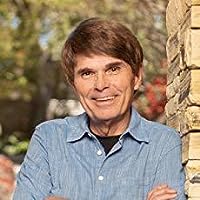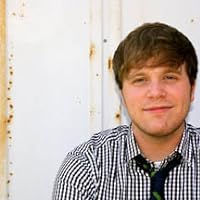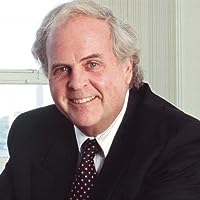Agoraphobia Quotes
Quotes tagged as "agoraphobia"
Showing 1-20 of 20

“People with mental illnesses aren't wrapped up in themselves because they are intrinsically any more selfish than other people. Of course not. They are just feeling things that can't be ignored. Things that point the arrows inward.”
― Reasons to Stay Alive
― Reasons to Stay Alive

“I lay on my floor crying again… shaking. Searching for inner strength and coming up empty. My eyes burned and my mouth was dry as I sucked on air that seemed to keep getting thicker and harder to breathe. I tried to leave again, but ended up leaning my forehead against the door, feeling defeated and wishing the Grim Reaper would come for me in all his silky, black glory.”
―
―

“A fine line separates the weary recluse from the fearful hermit. Finer still is the line between hermit and bitter misanthrope.”
― Velocity
― Velocity

“Outside has everything. Whenever I think of a thing now like skis or fireworks or islands or elevators or yo-yos, I have to remember they're real, they're actually happening in Outside all together. It makes my head tired. And people too, firefighters teachers burglars babies saints soccer players and all sorts, they're all really in Outside. I'm not there, though, me and Ma, we're the only ones not there. Are we still real?”
― Room
― Room

“What he feared the most was that all this hiding had made it impossible for him to ever be found again.”
― Highly Illogical Behavior
― Highly Illogical Behavior

“When I first read Lovecraft around 1971, and even more so when I began to read about his life, I immediately knew that I wanted to write horror stories. I had read Arthur Machen before I read Lovecraft, and I didn’t have that reaction at all. It was what I sensed in Lovecraft’s works and what I learned about his myth as the “recluse of Providence” that made me think, “That’s for me!” I already had a grim view of existence, so there was no problem there. I was and am agoraphobic, so being reclusive was a snap. The only challenge was whether or not I could actually write horror stories. So I studied fiction writing and wrote every day for years and years until I started to get my stories accepted by small press magazines. I’m not comparing myself to Lovecraft as a person or as a writer, but the rough outline of his life gave me something to aspire to. I don’t know what would have become of me if I hadn’t discovered Lovecraft.”
―
―

“Being stress and anxiety free is a human preset, I just show you how to 'flick the switch' to off. Permanent stress and anxiety recovery is possible quickly and simply despite what many are told.”
― The Linden Method: The Anxiety and Panic Attacks Elimination Solution
― The Linden Method: The Anxiety and Panic Attacks Elimination Solution

“I know nobody ever got over being afraid of the dark by never turning off the lights.”
― When One Door Opens
― When One Door Opens

“I’m in a caregiver's relationship with my body, a perpetual internal gauging of wellness. My spine is Hogarth’s thermometer. I ascend and descend its rungs a hundred times a day, reading the mercury level. The same dis-ease speaks many languages. If you block one mouth, another will speak. The symptoms represent differently, and as I get older, my translation changes. The prescription changes. Must be vigilant. Must be my best nurse.”
―
―

“I was trapped. The day would be hell. I would suffer. I felt I might not survive. I needed a dark, quiet room, my videos, my bed, my pills. I hadn't been this far from home in many months. I was frightened.”
― My Year of Rest and Relaxation
― My Year of Rest and Relaxation

“Solomon had good days and he had bad days, but the good had far outnumbered the bad since Lisa and Clark had started coming around. Sometimes, though, they'd show up and he's look completely exhausted, drained of all his charm and moving in slow motion. They could do that to him—the attacks. Something about the physical response to panic can drain all the energy out of a person, and it doesn't matter what causes it or how long it lasts. What Solomon had was unforgiving and sneaky and as smart as any other illness. It was like a virus or cancer that would hide just long enough to fool him into thinking it was gone. And because it showed up when it damn well pleased, he'd learned to be honest about it, knowing that embarrassment only made it worse.”
― Highly Illogical Behavior
― Highly Illogical Behavior

“Maybe my time's running out, but at least I'm living. And if that's what it is for you, being here inside where nothing ever happens, where you think you're safe, then stay. Stay right here and you let me know how that works for you.
Bacause I'm gessing it'll never be enough.”
―
Bacause I'm gessing it'll never be enough.”
―

“And if, indeed, there is nothing beyond the corner? Who can affirm if beyond so-called ‘reality’ anything exists at all? Beyond a reality that I have probably created? As long as I’m steeped in this reality up to my neck, as long as it is sufficient for me—everything is tolerable. But what would happen if I wanted one day to lean out of my safe environment and glance beyond its borders?”
― The Dark Domain
― The Dark Domain
“You are a living, breathing vision board and can change it daily with your thoughts to create the life you desire.”
― Starving Your Fears: From Panic to Peace in 10 Easy Steps
― Starving Your Fears: From Panic to Peace in 10 Easy Steps
“After all, the larger the space you find yourself alone in, the more isolated you feel.
And being aware of how lonely you are (dry laugh) can make anywhere feel more empty.”
― The Magnus Archives: Season 4
And being aware of how lonely you are (dry laugh) can make anywhere feel more empty.”
― The Magnus Archives: Season 4

“Unfettered spaces scare me. I’m not used to scenes that aren’t in a frame. Looking at a picture inside a border always calms me down, whether it’s an ultravista or the real thing. It’s probably from all the TV.”
― Terminal Boredom: Stories
― Terminal Boredom: Stories
“With agoraphobia you feel safe only when you are in certain environments. Your anxiety increases every time your ’safe place’ is unavailable, blocked, or becomes more distant.”
― Depressed and Anxious: The Dialectical Behavior Therapy Workbook for Overcoming Depression and Anxiety
― Depressed and Anxious: The Dialectical Behavior Therapy Workbook for Overcoming Depression and Anxiety
“In Separation (1973a), Bowlby puts forward a theory of agoraphobia based on the notion of anxious attachment. He sees agoraphobia, like school phobia, as an example of separation anxiety. He quotes evidence of the increased incidence of family discord in the childhoods of agoraphobics compared with controls, and suggests three possible patterns of interaction underlying the illness: role reversal between child and parent, so that the potential agoraphobic is recruited to alleviate parental separation anxiety; fears in the patient that something dreadful may happen to her mother while they are separated (often encouraged by parental threats of suicide or abandonment); and fear that something dreadful might happen to herself when away from parental protection.”
― John Bowlby and Attachment Theory
― John Bowlby and Attachment Theory

“The experience of agoraphobia can range from mild to severe restriction in lifestyle, and a severe case may result in the individual’s being completely housebound or unable to leave home unaccompanied. Avoided activities may include driving (locally or long distance); traveling over bridges; going to grocery stores, malls, theaters, churches, or temples; being in crowds; going to restaurants; using public transportation; going to the barber or hairdresser; or being in enclosed or being in wide-open spaces. It is not uncommon for patients with agoraphobia to define a ’safe zone’ around their homes, and to be unable to venture outside this radius.”
― Anxiety and Its Disorders: The Nature and Treatment of Anxiety and Panic
― Anxiety and Its Disorders: The Nature and Treatment of Anxiety and Panic
All Quotes
|
My Quotes
|
Add A Quote
Browse By Tag
- Love Quotes 97.5k
- Life Quotes 76k
- Inspirational Quotes 73k
- Humor Quotes 43.5k
- Philosophy Quotes 29.5k
- Inspirational Quotes Quotes 27k
- God Quotes 26k
- Truth Quotes 23.5k
- Wisdom Quotes 23.5k
- Romance Quotes 23k
- Poetry Quotes 22k
- Death Quotes 20k
- Happiness Quotes 18.5k
- Life Lessons Quotes 18.5k
- Hope Quotes 18k
- Faith Quotes 18k
- Quotes Quotes 16.5k
- Inspiration Quotes 16.5k
- Spirituality Quotes 15k
- Religion Quotes 15k
- Motivational Quotes 15k
- Writing Quotes 15k
- Relationships Quotes 14.5k
- Life Quotes Quotes 14k
- Love Quotes Quotes 14k
- Success Quotes 13.5k
- Time Quotes 12.5k
- Motivation Quotes 12k
- Science Quotes 11.5k
- Motivational Quotes Quotes 11.5k


